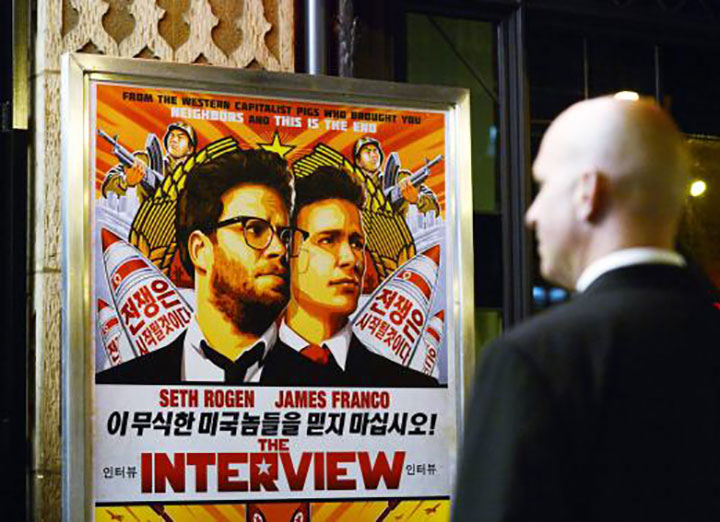
On Friday, the FBI officially blamed the North Korean government for hacking Sony Pictures Entertainment in an attempt to halt the release of the company's movie 'The Interview." And one politician has offered a solution to the problem that would not only get the movie out to viewers but would also help a global cause.
Former presidential candidate Mitt Romney tweeted on Wednesday, "Sony Pictures don't cave, fight: release 'The Interview' free online globally. Ask viewers for voluntary $5 contribution to fight Ebola."
Unfortunately - and much to the disappointment of many - Sony did cave. The company sided with theaters around the nation after many expressed concern for the safety of their patrons should the movie open on Christmas day and North Korea choose to retaliate.
"In light of the decision by the majority of our exhibitors not to show the film 'The Interview,' we have decided not to move forward with the planned December 25 theatrical release," Sony said in a statement. "We respect and understand our partners' decision and, of course, completely share their paramount interest in the safety of employees and theater-goers."
Sony proposed no new release date for the movie.
Starring actors James Franco and Seth Rogan, 'The Interview' caught the attention of North Korea due to its controversial plot - the assassination of the country's sitting supreme leader, Kim Jong Un. And the FBI believes their answer to the upcoming release was a complete cyber infiltration of Sony.
"North Korea's actions were intended to inflict significant harm on a U.S. business and suppress the right of American citizens to express themselves," the FBI said in its statement regarding the hack. "Such acts of intimidation fall outside the bounds of acceptable state behavior."
After Sony's decision, Romney's sentiments were echoed by actor Rob Lowe who tweeted, "Wow. Everyone caved. The hackers won. An utter and complete victory for them. Wow." Donald Trump also released a video on Instagram scolding Sony for "having no courage and no guts."
The FBI is now concerned about the message that Sony is sending the rest of the world, and the impact it will have on future cyber-attacks.
"We are deeply concerned about the destructive nature of this attack on a private sector entity and the ordinary citizens who worked there," the FBI said in its statement. "Further, North Korea's attack on SPE reaffirms that cyber threats pose one of the gravest national security dangers to the United States. Though the FBI has seen a wide variety and increasing number of cyber intrusions, the destructive nature of this attack, coupled with its coercive nature, sets it apart."
For Sony, disparaging tweets from politicians and celebrities may be less upsetting than compliments from hackers.
The group Guardians of Peace - which claimed responsibility for the hack - sent Sony another e-mail on Friday.
"Very wise to cancel 'the interview' it will be very useful for you. We ensure the purity of your data and as long as you make no more trouble," it read, written in broken English.
The email - though probably unknowingly - also addressed Romney's suggestion.
"Now we want you never let the movie released, distributed or leaked in any form of, for instance, DVD or piracy," the hackers wrote.
On Friday, President Obama called Sony's decision a mistake. He addressed the reality of cyber terrorists taking the fight even deeper, saying "imagine what they will start doing when they see a documentary that they don't like or news reports that they don't like."
"We cannot have a society in which some dictator some place can start imposing censorship here in the United States."



















